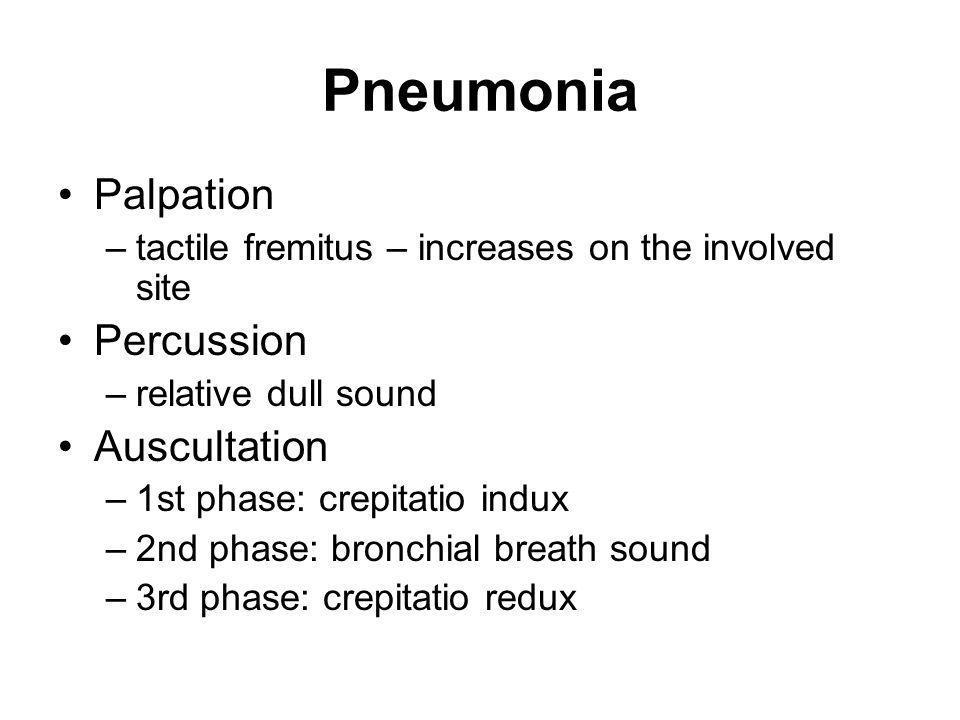
Pneumonia Auscultation Sounds. You re more likely to have them when you breathe in but they can happen when you breathe. In the upright position auscultation of the lungs was normal in all control subjects and in lateral decubitus positions their dependent lungs revealed transient late inspiratory crackles in seven of the 37 18 9 and transient inspiratory peeling sounds in two others 5 4. The most common symptoms were cough 73 7 during auscultation. At the end of 2019 a novel coronavirus was identified as the cause of a cluster of pneumonia cases i.

Coronaviruses are important human and animal pathogens. Breath sounds heard during auscultation of the lungs can help diagnose lung diseases. You re more likely to have them when you breathe in but they can happen when you breathe. It is soft and. Learn about sounds such as wheezes stridor rhonchi and more. They can also sound like bubbling rattling or clicking.
It is soft and.
You re more likely to have them when you breathe in but they can happen when you breathe. They can also sound like bubbling rattling or clicking. It is soft and. This is a series of short explosive sounds. Adventitious lung sounds are referenced as crackles rales wheezes rhonchi stridor and pleural rubs as well as voiced sounds that include egophony bronchophony and whispered pectoriloquy. Coronaviruses are important human and animal pathogens.